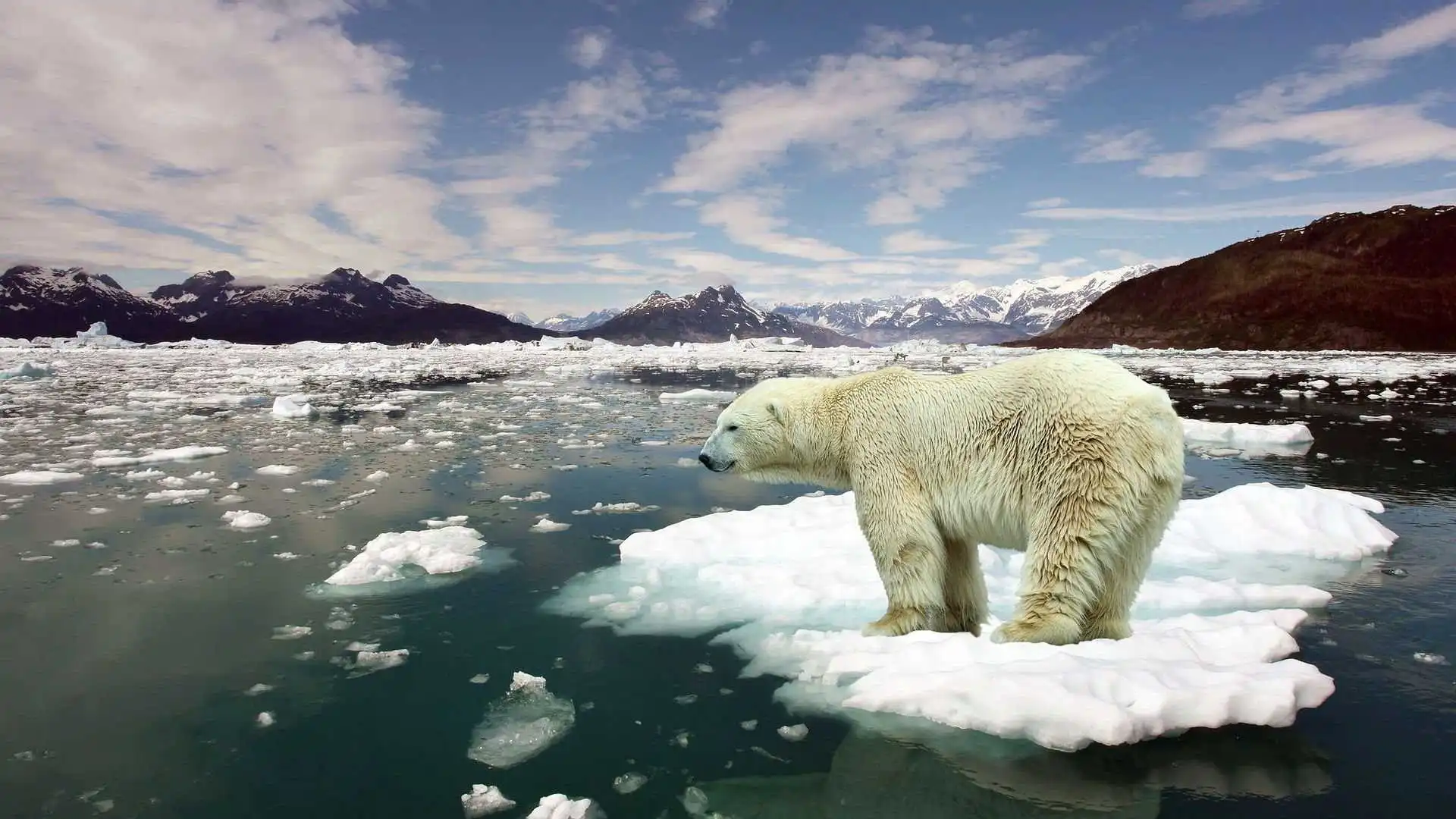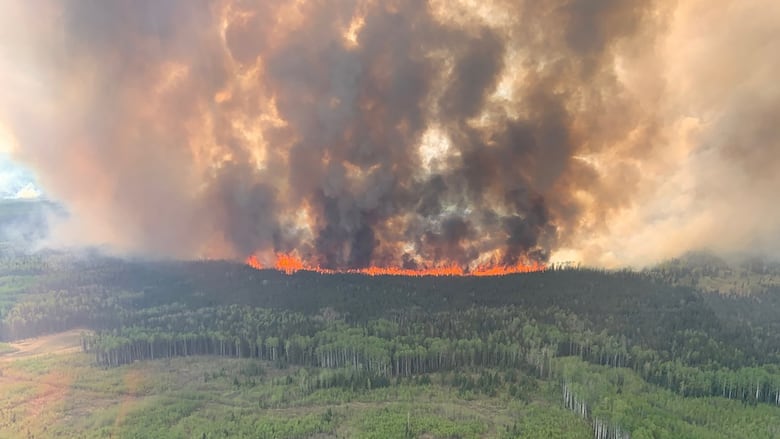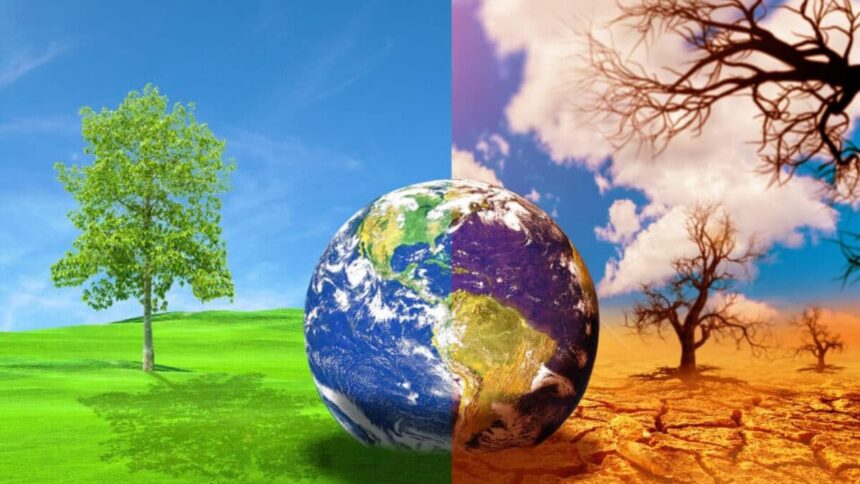Global warming is no longer a distant threat or abstract scientific theory. This is a real, living force that is dramatically changing the world we live in. With increasing temperatures and shifting weather patterns, we are fundamentally changing the ecology and environment of our planet.
These changes will not only have ramifications for the natural world, but they will also have serious impacts on the stability of ecosystems, biodiversity, and human societies around the globe.
In this article, we’ll take a deep dive into how global warming is reshaping the ecology and environment, exploring the causes, consequences, and potential solutions to one of the most pressing challenges of our time.
Understanding Global Warming and Its Causes
Global warming is defined as a long-term increase in Earth’s average temperature across the climate system, primarily due to the buildup of greenhouse gases- including carbon dioxide (CO₂), methane (CH₄) and nitrous oxide (N₂O)- in the atmosphere. These gases can trap heat from the sun, or the greenhouse effect.
In the past century, humans have been responsible for extremely high rates of greenhouse gas buildup through activities such as burning fossil fuels, deforestation, industrial pollution, and high-intensity agriculture practices. The result? A planet that is getting warmer and changing rapidly with extreme weather events and disruptions, melting ice caps and glaciers, increasing sea levels, and ecosystem changes.

Impact on Biodiversity and Species Extinction
Species extinction is accelerating due to global warming. There are approximately one million animal vertebrate and plant species threatened with extinction, according to the Intergovernmental Science-Policy Platform on Biodiversity and Ecosystem Services (IPBES), many of which have been in decline for decades. It is driven by significant changes in habitats, climate stress, and invasive species in changing ecosystems.
Coral reefs are host to massive bleaching events due to rising sea temperatures. Coral reefs are biodiversity hotspots, coast protectors, and the foundation of marine food chains. Their decline has huge implications for aquatic species and coastal communities that count on them for food and income.
Oceanic and Atmospheric Changes
The oceans are essential for regulating the climate of Earth. However, global warming is causing the oceans to absorb significantly more heat, and it is affecting the oceans chemically by causing ocean acidification and decreasing oxygen levels. These changes are affecting all marine species, from the largest fish to the smallest plankton, and are affecting the global food web.
Furthermore, melting glaciers and polar regions are causing sea levels to rise, which is putting coastal populations and habitats at greater risk. In addition, as ocean temperatures increase, hurricanes and cyclone events become more intense and more destructive, resulting in increasingly frequent and extreme weather events.
The atmosphere is similarly affected by climatic extremes. Changes in temperature in different regions are changing the timing and amount of rainfall, resulting in extended droughts in some areas and prolonged flooding in other areas. The climate extremes will have direct effects on agriculture, water availability and public health.

Forests, Wildfires, and Ecosystem Collapse
Forests are among the most affected ecosystems when it comes to global warming. Rising temperatures and shifting precipitation patterns are leading to more frequent and intense wildfires. These fires not only destroy vast areas of forest but also release large amounts of carbon into the atmosphere, further fueling global warming in a vicious feedback loop.
In many regions, forests are struggling to regenerate due to changing climate conditions. This weakens their ability to act as ‘carbon sinks’, which are natural systems that absorb and store carbon dioxide from the atmosphere, crucial for maintaining the balance of the ecology and environment.
Human Influence and Environmental Stress
Human activities are deeply intertwined with ecological change. Urban expansion, industrialization, and infrastructure development are fragmenting habitats and reducing the resilience of ecosystems to climate change.
Agriculture, which depends heavily on stable weather conditions, is also being disrupted. Crop failures, water scarcity, and soil degradation are becoming more common, threatening global food security. In turn, this can lead to social instability, migration, and conflict over natural resources.
The most vulnerable communities—particularly those in developing countries—are bearing the brunt of these changes, despite contributing the least to global warming. This raises important questions about ‘climate justice’, which advocates for the fair treatment of all people and the equitable distribution of climate mitigation resources, regardless of their contribution to the problem.
Towards a Sustainable Future
Addressing global warming and its impact on the ecology and environment requires immediate and sustained action at all levels—individual, local, national, and global. Key strategies include:
- Lower greenhouse gas emissions by using cleaner energy approaches (solar, wind, hydro, and nuclear).
- Protect and regenerate natural ecosystems (forests, wetlands, oceans).
- Encourage sustainable agriculture and responsible consumption.
- Invest in climate adaptation and resilience, especially for at-risk areas.
- Create community education programs to inform and engage people about climate change, encouraging them to take action.
However, much more needs to be done to meet climate goals and prevent further damage to the planet’s life-support systems.
Conclusion:
The effects of global warming on the ecology and environment are deep, broad and increasing. Changing habitats, species extinction, rising seas and failing ecosystems are just a few consequences already in evidence around the world.
But through collaboration, scientific advancement and a dedication to living sustainably, we can lessen damage together and try to maintain an ecological balance on Earth for generations to come. The time to act is now – not just to ensure the health of the environment but to ensure the continued existence and health of all life on Earth.
Related News:
World’s Glaciers Melting Faster Than Ever Due to Climate Change














